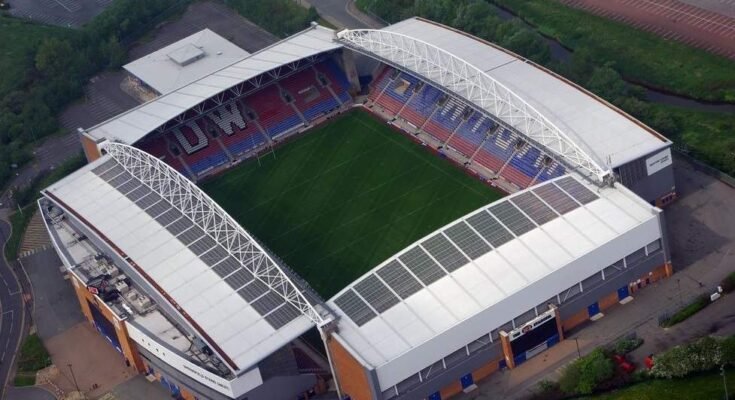

The DW Stadium is a multi-purpose stadium located in the town of Wigan, Greater Manchester, England. It is primarily used for hosting football (soccer) matches, but it has also been used for rugby league and rugby union matches, as well as for concerts and other events. The stadium was built in 1999 and opened in 2000, replacing Wigan’s former stadium, Springfield Park. It has a seating capacity of 25,138, making it one of the larger stadiums in the English Football League.
The stadium is home to Wigan Athletic Football Club, which plays in League One, the third tier of English football. The stadium has also been used by the Wigan Warriors Rugby League Club, as well as by the English national rugby league team and the England women’s national football team. The name “DW Stadium” comes from the stadium’s sponsor, the DW Sports Fitness company, which was founded by former Wigan Athletic owner Dave Whelan. The stadium has also been known as the JJB Stadium and the Robin Park Arena in the past, depending on the sponsor at the time.
In addition to sports events, the DW Stadium has also hosted concerts by artists such as Elton John, Bon Jovi, and The Who.
The DW Stadium was built to replace Wigan Athletic’s old stadium, Springfield Park, which had become outdated and no longer met modern safety standards. The construction of the new stadium was funded in part by a grant from the UK government’s Football Trust. The stadium was designed by architects Alfred McAlpine and Partners and built by the construction firm Birse. It cost around £30 million to build and took approximately two years to complete.
The DW Stadium officially opened on 4 August 1999, with a friendly match between Wigan Athletic and Morecambe. The first competitive match played at the stadium was a League Cup match between Wigan Athletic and Scunthorpe United on 15 August 1999. The stadium was initially named the JJB Stadium, after its sponsor, the JJB Sports company, which was founded by former Wigan Athletic owner Dave Whelan. The name was changed to the DW Stadium in 2009, following the rebranding of JJB Sports to DW Sports Fitness.
In addition to hosting football matches, the stadium has also been used for rugby league and rugby union matches. Wigan Warriors Rugby League Club played their home matches at the stadium between 1999 and 2021. The stadium has also been used by the English national rugby league team and the England women’s national football team. The DW Stadium has undergone several renovations and upgrades over the years, including the installation of a new pitch, a new scoreboard, and improved disabled access. Despite financial struggles and relegations from the Premier League, Wigan Athletic continue to call the DW Stadium their home, and it remains a popular venue for sports events and concerts.
The DW Stadium has a seating capacity of 25,138 and features four main stands: the West Stand, the East Stand, the North Stand, and the South Stand. The stands are named based on their location relative to the pitch.
Here is a breakdown of the seating plan for each stand:
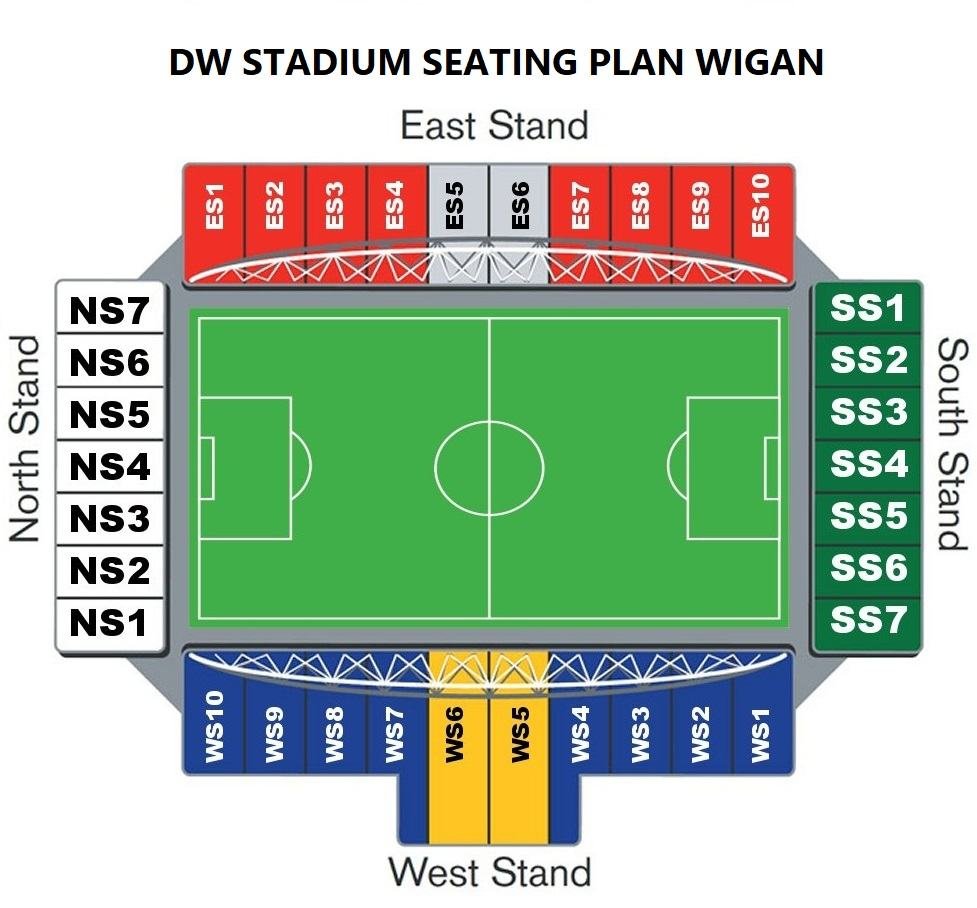
In addition to these four main stands, the DW Stadium also has a number of hospitality boxes and executive suites that offer premium seating and amenities. The seating at the DW Stadium provides a great viewing experience for fans, with excellent sightlines and comfortable seating throughout the stadium.
The ticket prices for matches at the DW Stadium vary depending on the competition, the opposition, and the location of the seats within the stadium.
For Wigan Athletic’s home matches, the ticket prices usually range from £20 to £28 for adults, with concessions available for seniors (over 65), young adults (18-21), and juniors (under 18). Family tickets are also available, which offer discounted rates for adults and children.
For rugby league matches, the ticket prices are usually similar to those for football matches, depending on the competition and the opposition.
For concerts and other events, the ticket prices vary widely depending on the artist, the demand for tickets, and the location of the seats within the stadium.
It’s important to note that ticket prices can change based on various factors, and the best way to get up-to-date information on ticket prices is to check the official website or ticket office of the DW Stadium.
Here are the general steps for booking tickets for an event at DW Stadium:
It’s important to note that the exact booking process may vary depending on the event and the ticketing partner. Some events may require additional information or may have specific terms and conditions for ticket purchases. Therefore, it’s always recommended to check the event’s official website or ticketing partner for specific instructions on how to book tickets.\
The DW Stadium has several parking options available for visitors attending events at the venue. Here are some details:
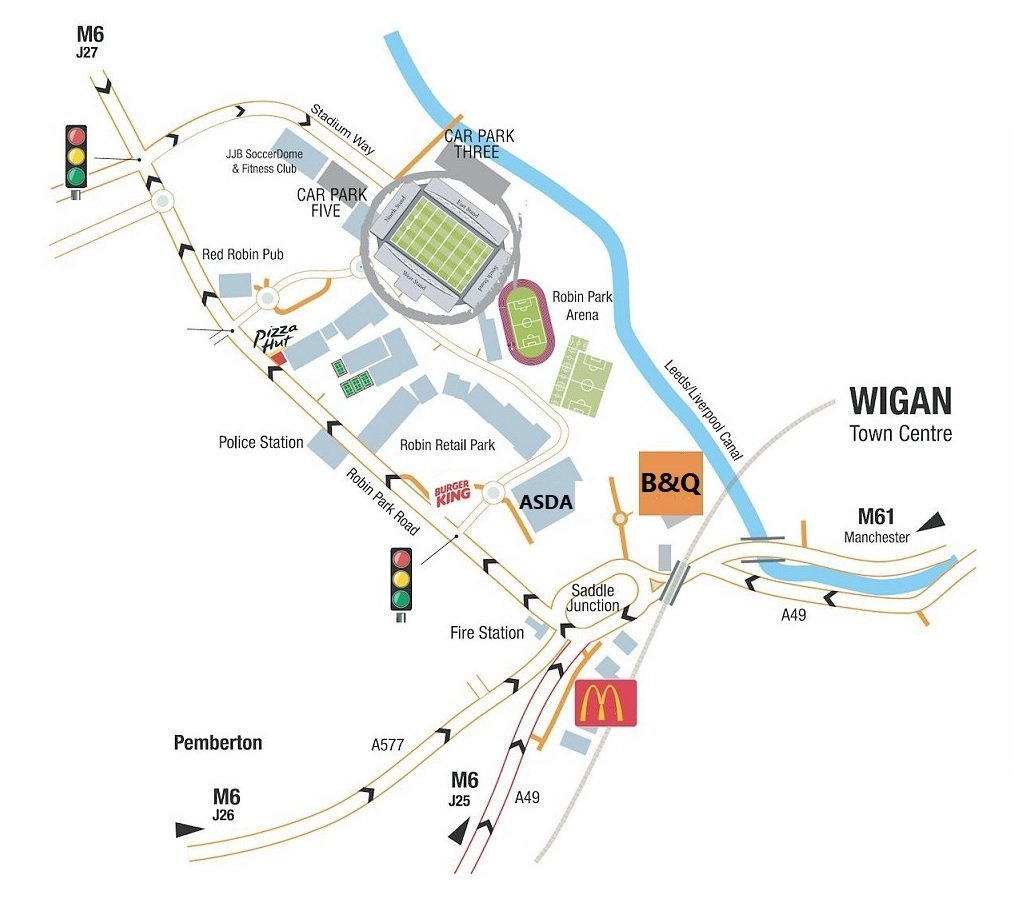
It’s important to note that parking can be limited during busy events, so it’s recommended to arrive early to secure a parking spot. Additionally, some events may have specific parking arrangements, so it’s always best to check the event’s official website for specific parking information and any alternative travel options that may be available.
The DW Stadium is located in Wigan, Greater Manchester, in the North West of England. Here are some ways to reach the stadium:
It’s recommended to plan your journey in advance and check the event’s official website for any specific travel information related to the event you are attending.
The DW Stadium offers a range of facilities to visitors attending events at the venue. Here are some of the main facilities:
It’s recommended to check the event’s official website for any specific facilities or services related to the event you are attending.

August 21, 2024 August 21, 2024
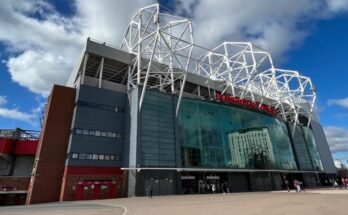
August 13, 2024 August 13, 2024
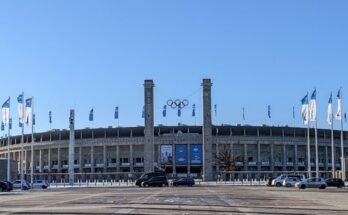
June 24, 2024 June 24, 2024